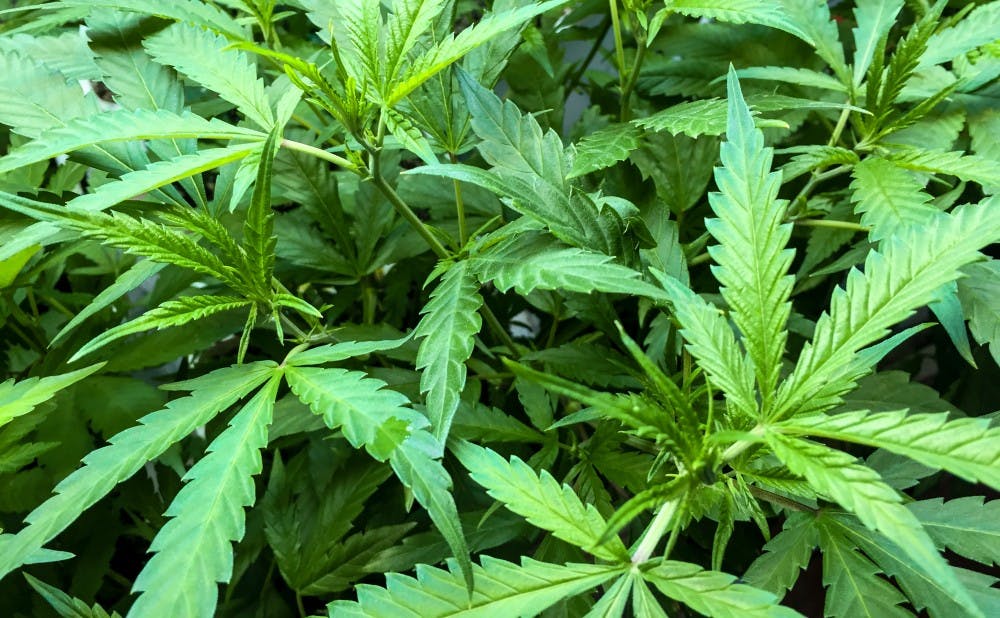During the last several years, marijuana use has increased, as medical cannabis has become legalized in 33 U.S. states.
New research from Duke suggests that its use can alter the DNA of sperm.
Susan Kay Murphy, associate professor in obstetrics and gynecology, and Scott Kollins, professor in psychiatry and behavioral sciences, recently published findings of a study to determine if cannabis has effects on reproduction. The research was focused on determining if pre-conceptional exposure to cannabis alters the epigenetics of sperm.
Twenty-four men—twelve cannabis users and twelve non-users—were enrolled and participated in the study. Data was then collected and sequenced on participants' genomic profiles to determine if cannabis alters the DNA methylation of its users.
“DNA methylation is a type of epigenetic modification," Murphy said. "We all have DNA methylation in our cells. The methylation is the addition of a carbon and three hydrogen atoms—little molecular tags—to the DNA at specific bases."
In certain regions of DNA, the default is to be un-methylated. Thus, if methyl tags are there, it can repress the activity of the gene. Methylation has various regulatory effects on the gene, and it is common in many if not all forms of cancer. On the other hand, methylation is an important component in the development of sperm, so its alteration could be detrimental.
Essentially, the changes in methylation could change one’s sperm.
“The changes we are seeing are methylation," Murphy said. "We don’t know whether those changes can survive the reprogramming during early development and then [be] carried into the offsprings' tissues.”
Methyl groups go through reprogramming twice during the course of our lifespan. The first occurs when the gamete is developing. The methyl groups get stripped away from the genome and are added back once the sex is determined.
The second reprogramming period occurs right after fertilization and involves erasure of the methylation marks.
“We don’t know whether the differences that we are seeing in the user group that we studied can be passed onto the offspring," Murphy said. "They may all get erased after fertilization, and you would never see any evidence of it in the offspring."
However, many researchers agree that the reprogramming periods are a very vulnerable time in development and that anything from cannabis exposure to eating a high-fat diet could have an effect on the efficiency and accuracy of the reprogramming process.
Researchers suspect that THC, the active ingredient in cannabis, is responsible for many of these reproductive effects. This is supported by a complementary experiment they conducted testing the epigenetic effects seen in THC-exposed rodents.
Murphy noted that prior studies by another group have shown that exposing parents to THC results in offspring that exhibit behavioral abnormalities, but also are more likely when they become adolescents to use self-administered heroine—they have more of an addictive phenotype.
Although they are still unsure of the exact mechanics, the researchers were able to conclude that exposure to cannabis does have an effect on the sperm. Neurodevelopment testing revealed that the offspring of fathers who are exposed to THC exhibited higher ADHD and schizophrenic-like behaviors.
Additionally, they found that the higher the concentration of THC in users’ systems, the greater the genetic alterations to their sperm. At this point, it is unknown whether a sperm affected by THC would be healthy enough to fertilize an egg and continue its development into an embryo.
The findings were limited due to the relatively small number of men involved in the trial, so the Duke research team is planning to continue their research with larger groups. They also plan to study whether changes in sperm can be reversed if the user is no longer exposed to cannabis, and want to determine if any epigenetic changes are carried forward to the child. They also want to learn about the impact of those changes by testing the umbilical cord blood of babies born to fathers with THC-altered sperm.
"I just feel that it’s important that people have a better understanding of what the potential consequences are so that they can make better-informed decisions about when and where and if they do want to use," Murphy said.
Get The Chronicle straight to your inbox
Signup for our weekly newsletter. Cancel at any time.

